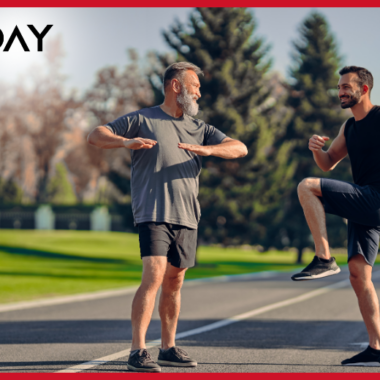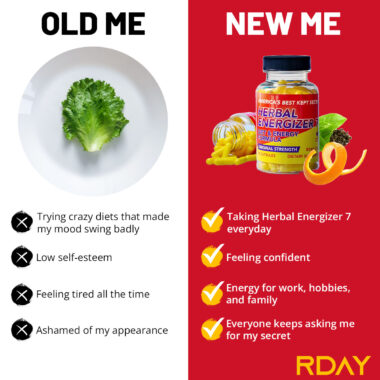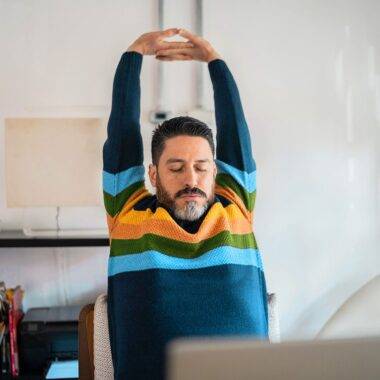Do your eyelids get progressively heavy throughout the day? Do you struggle to stay awake through meetings, or does your attention fade from tiredness when you need to be alert? Many of us battle various levels of exhaustion at any given time of day. Feeling tired can be tiring! Here are some helpful tips for staying awake when you feel sleep is knocking.
When you feel tired but need to stay awake, there are things you can do to keep from falling asleep. These include making changes to your environment (such as lighting and temperature), taking breaks to refuel and stimulate yourself, and ensuring you have ample sleep reserves to fall back on when faced with long work or study hours.
Daytime sleepiness is something that many people struggle with. It is often caused by poor sleep habits or sleep disorders that undermine the quality or duration of sleep.
This article offers 10 tips on how to stay awake when you are tired. It also discusses prescription drugs that healthcare providers may prescribe if daytime sleepiness affects your work or quality of life.
Get Enough Sleep
The best defense against daytime sleepiness is getting a good night’s rest. Not getting enough sleep, called sleep restriction, is the most common cause of daytime drowsiness and fatigue.1
According to the Centers for Disease Control and Prevention (CDC), the amount of sleep time you need varies by age:2
| Group | Age | Hours of sleep needed |
|---|---|---|
| Newborns | 0-3 months | 14-17 hours |
| Infants | 4-12 months | 12-16 hours (including naps) |
| Toddlers | 1-2 years | 11-14 hours (including naps) |
| Preschoolers | 3-5 years | 10-13 hours (including naps) |
| School-aged | 6-12 years | 9-12 hours |
| Teens | 13-18 years | 8-12 hours |
| Adults | 18-60 years | 7 or more hours per night |
| Older adults | 61-64 years | 7-9 hours per night |
| 65 years and over | 7-8 hours per night |
By getting enough sleep on a regular basis, you will have the reserves needed to work, study, or stay out late. By not getting enough sleep, called a sleep deficit, you will be hard-pressed to be productive even if you manage to stay awake.3
Take Frequent Breaks
Concentrating on a work task for a long period of time can make you feel exhausted. As hours turn into many hours, the quality of your work may suffer, causing you to make mistakes. This is especially true when working in front of a computer, leading to what some call “computer work fatigue.”4
To keep this from happening, take frequent short breaks every couple of hours. Instead of checking personal emails or playing on the computer, get up from your desk, stretch your legs, and get a snack or a drink to keep your energy levels up.
Consume Caffeine
Caffeine is an effective way to stay awake and alert when your energy starts to lag. it s a natural stimulant that can boost energy and improve your focus.1
To avoid jitteriness, rapid heartbeats, and other caffeine side effects, you’ll want to space out doses and limit yourself to the following daily intake:5
- Adults: 400 milligrams (mg) or roughly four to five cups of coffee per day
- Children and teens: No more than 2.5 mg of caffeine per kilogram (kg) of body weight
Coffee, tea, hot chocolate, and soda are popular caffeinated drinks. You can also get caffeine from foods like chocolate.6
Alternate Your Activities
If you have trouble concentrating at work, you may find it helpful to change up activities. For example, you can break large projects into smaller tasks and complete them in steps rather than all at once. Or, you can use Mondays for certain tasks and reserve Wednesdays for other tasks.
In nursing where hours are long and often late, fatigue reduction protocols call for the avoidance of repetitive tasks that can lead to exhaustion, a loss of concentration, and potentially serious mistakes.7
The same principles can be applied to any job. By shifting your work focus, you can be more attentive when tackling important tasks.
Get Some Light and Fresh Air
Interestingly, the type of lighting you have in your place of work can affect energy levels and lead to daytime fatigue.
This is evidenced by a 2022 study in the International Journal of Environmental Research and Public Health, which concluded that 400-kilowatt, color temperature-controlled lighting reduces workplace fatigue compared to regular incandescent or fluorescent lights.4 400 kilowatts is a level of lighting that replicates daylight.
Because you often have no control over the lighting in your office, the next best thing to do is to get some sunlight and fresh air. Light exposure helps overcome sleepiness by maintaining the circadian rhythm that “tells” our bodies when to go to sleep and when to stay awake.8
Take a Nap
If you are battling daytime sleepiness, a nap may be enough to recharge your batteries. A 2016 study published in Sleep Science found that short “power naps” significantly improve learning and memory skills even for people who are not sleep-deprived and who get ample sleep.9
In many cultures, having a midday nap is part of the daily routine.10
As a general rule, naps lasting 15 to 20 minutes are the best way to get recharged. Anything longer may put you in a deeper state of sleep and leave you feeling groggy when you awaken.11
Have a Snack
Postprandial fatigue, also called “food coma,” is a state of drowsiness that happens after a meal. It typically occurs 30 minutes to one hour after eating and can persist for several hours. It happens when blood from the brain is diverted to the stomach to aid with digestion.12
One strategy to avoid this is to have a light lunch followed by a snack an hour later and maybe a coffee and another snack an hour or two after that.
Avoid sugary snacks that can give you a rush of energy followed by a “crash” an hour or two later.12 Instead, choose light, nutritious snacks like apple slices with peanut butter or carrot sticks with hummus.
Exercise and Be Active
Sedentary activities like sitting in a conference room, driving long distances, or being at your desk for hours on end can make you feel drowsy. It can also affect your mood, making you feel low, edgy, or washed out.
Exercise is a natural remedy to both of these concerns.
On the one hand, exercise improves energy levels by activating mitochondria inside muscle cells. Mitochondria are structures within cells that turn blood glucose (sugar) into fuel. Increased mitochondria activation translates to increased energy levels for the body as a whole.13
On the other hand, exercise stimulates the production of “feel-good” hormones called endorphins. An increase in endorphins can rapidly lift your spirits and, by doing so, improve your concentration and energy levels.14
Having a midday workout is certainly one way to approach this, but even having a brisk walk around the neighborhood can help enormously.
Keep the Environment Cool
If you have ever found yourself dozing off in a room that was overly warm, you know the benefits of keeping things on the cooler side.
It is well known that temperature can greatly affect your ability to sleep and stay awake. This is because hot and cold temperatures affect heart and respiration rates, burning up fuel reserves faster than normal. They also slow down the signaling between nerve cells in the brain, interfering with executive functions like reasoning, learning, and memory.
A 2019 study in Health Promotion Perspectives found that physiological and neurological functions were at best at temperatures around 71 F (22 C) and declined at temperatures over 30 F (86 F) or under 64 F (18 C).15
Use Medications as a Last Resort
Prescription medications called stimulants can help people stay awake in specific situations. Examples include:16
- Adderal (amphetamines)
- Ritalin (methylphenidate)
- Provigil (modafinil)
- Nuvigil (armodafinil)
Stimulants act on the brain to help you pay attention and remain alert.16 However, stimulants can be addictive and are rarely used to treat excessive daytime sleepiness.1 Their overuse can cause dizziness, tremors, headache, flushed skin, heart palpitations, chest pain, excessive sweating, vomiting, and abdominal cramps.1
Murray BJ. A practical approach to excessive daytime sleepiness: a focused review. Can Respir J. 2016;2016:4215938. doi:10.1155/2016/4215938
If you have a sleep disorder that causes daytime drowsiness, speak with a sleep specialist who may provide you with more appropriate and effective treatments.
Summary
When you’re feeling tired but need to stay awake, sipping a little caffeine, taking frequent breaks, or eating a light snack can help you fight sleepiness.
Exercising, power-napping, getting fresh air, enjoying natural light, and lowering the temperature in a room can also help you stay awake during the day.
If you have a sleep disorder, your provider may prescribe medications to help you stay awake. These medications come with risks, however, and are rarely used if daytime drowsiness is the only symptom.
It is not uncommon for most of us to look for ways to stay awake throughout our day. Regardless of the reason, we can feel sleepy no matter what we happen to be doing — luckily, there are effective methods of staying alert, energetic, and productive. Herbal Energizer 7 from RDAY is helping countless people boost their energy AND shed unwanted pounds. These supplements could be what you need. Questions? Call us at 800.447.8841 or follow us on Facebook.
Reference : [https://www.verywellhealth.com/tips-for-staying-awake-3015057]













